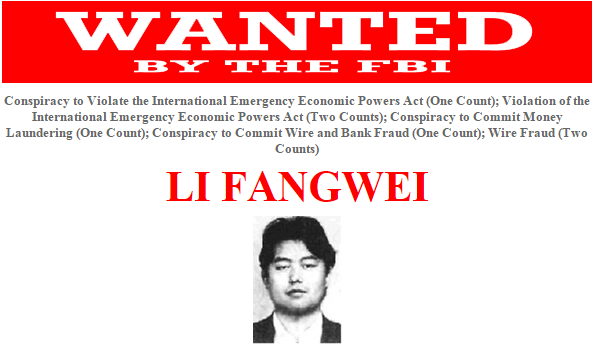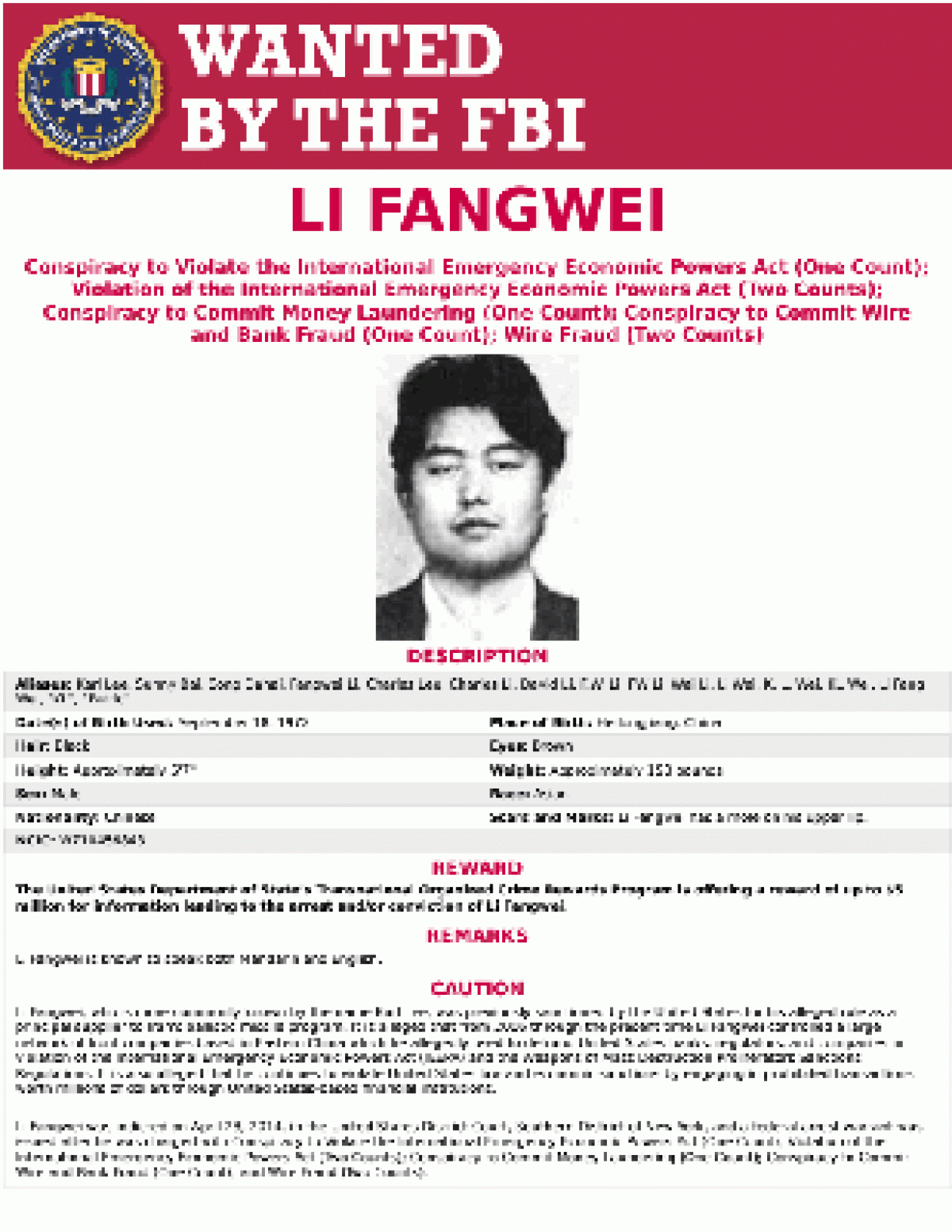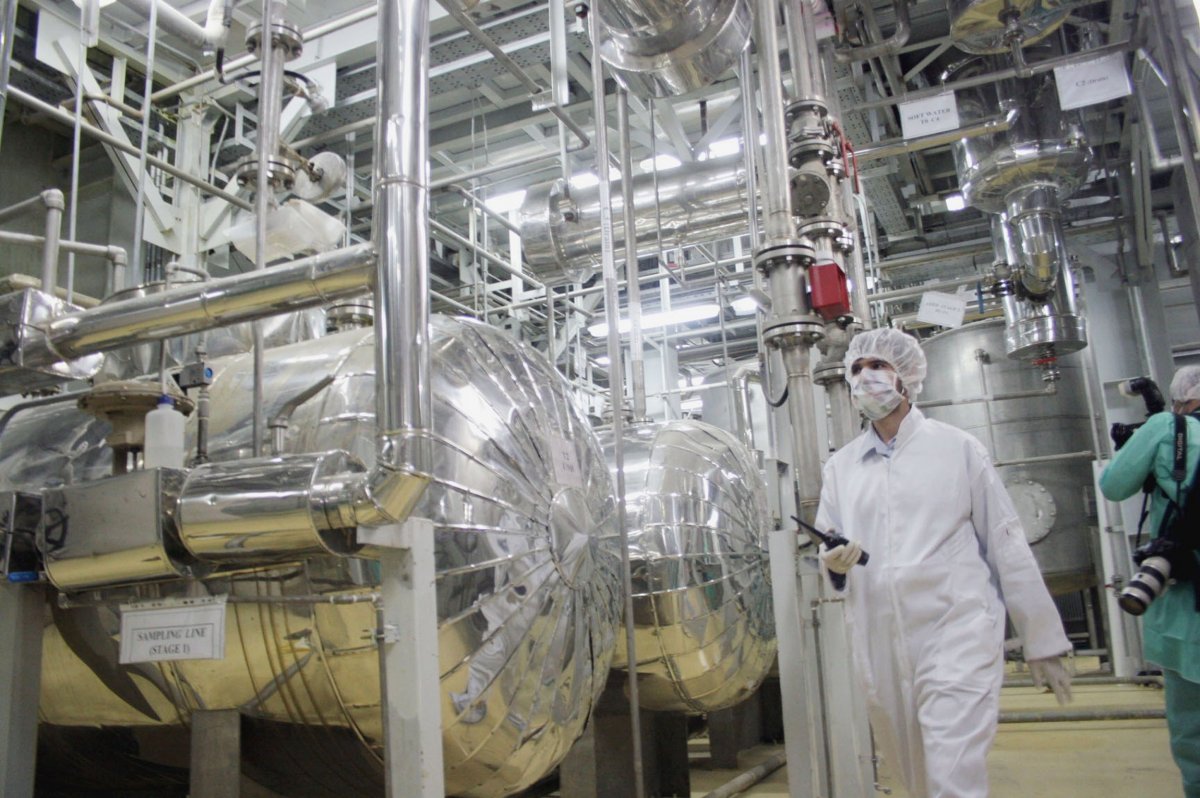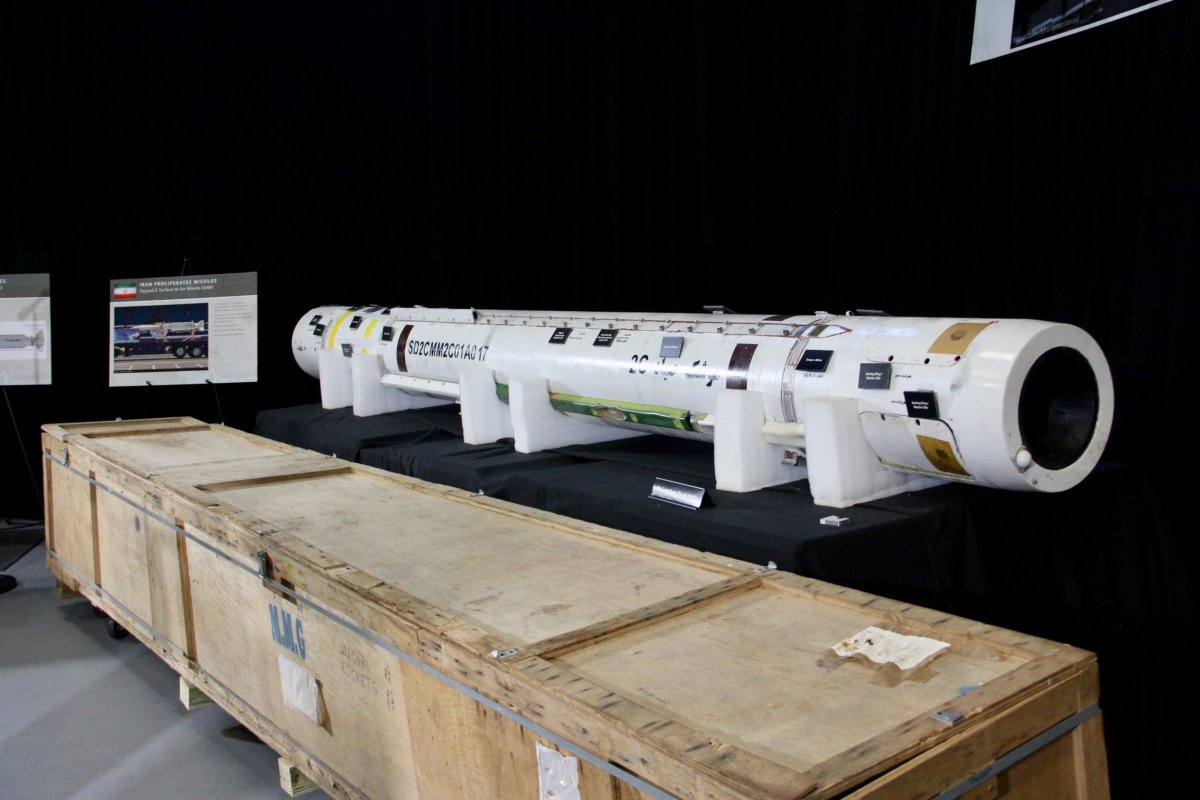
The Donald Trump administration took double-barrelled aim at China and Iran on Wednesday, sanctioning a shadowy Chinese weapons merchant for illegally supplying the Islamic Republic with advanced ballistic missile components.
Karl Lee, also known as Li Fangwei, among several other aliases, "has supplied Iran with the full range of materials required to construct ballistic missiles—everything from highly-accurate guidance and control components to the raw ingredients needed to produce missile propellant," a senior administration official told Newsweek on terms of anonymity.
The sanctions on Lee and his many shell companies were officially announced in the Federal Register Wednesday, but officials said the relevant congressional committees had been notified they were coming on May 14.

The new sanctions represent just the latest step by three U.S. administrations over a dozen years to curb the activities of Lee, who has been compared to A.Q. Khan, the notorious Pakistani scientist who secretly helped North Korea, Iran and Libya develop nuclear weapons programs beginning in the 1970s. In 2014, the Justice Department indicted Lee in New York for using "a web of front companies" to evade U.S. sanctions on Iran, and the FBI posted a $5 million reward for information leading to his arrest.
Despite numerous entreaties by the State Department to at least rein in Lee, Beijing has taken no action to stop him, much less arrest and ship him to New York to stand trial. The U.S. and China do not have an extradition treaty.
"We have engaged China diplomatically, we have sanctioned Karl Lee's activities, we've sanctioned his front companies," one official said. "The Chinese message has been, 'We have him under control. We are watching him. We are limiting his activities.' That, they are not. He continues to proliferate."
The officials expressed cold fury at China for allowing Lee to continue selling Iran a wide range of materials critical to its ballistic missiles program, including gyroscopes and accelerometers.
"It comes down to either they don't have the will to stop him or they don't have the ability," one official said in the not-for-attribution briefing. "Either it's not in control of China or this is another example of corruption where Chinese Communist Party officials take kickbacks to turn a blind eye to the enforcement of law."
"I vote for corruption," said Robert Manning, a former senior strategist at the National Counterproliferation Center in the Office of the Director of National Intelligence. "China works on guanxi, not the rule of law," he told Newsweek. Guanxi is the system of social networks and family connections that are the bedrock of Chinese political and business practices. A U.S. government investigator told Newsweek in 2015 that Lee, now 47, had a grandfather who was a "legendary colonel in the People's Liberation Army" during the Korean War.
China's embassy in Washington, D.C. did not immediately respond to a request for comment.

The Trump officials threatened to take further, more serious but unspecified action against China if it didn't move on Lee this time. "Naming and shaming" Beijing on Lee hasn't worked in the past.
"We know they don't like it when we shame them over these kinds of things, and they don't like it when we unilaterally sanction people," one of the officials said. "They're really not gonna like what comes next."
The officials declined to date Lee's most recent shipment of critical materials to Tehran, raising the possibility that the escalation of its rhetoric and actions on Lee are more part of the administration's international political campaign against Iran than acts directed at China.
But on Tuesday, a senior FBI official singled out China and Lee during a congressional hearing. "Lee used his Chinese shell and front companies to surreptitiously exploit the U.S. financial system to supply weapons of mass destruction to Iran," Steven D'Antuono, acting deputy assistant director of the FBI's Criminal Investigative Division, told the Senate Banking, Housing, and Urban Affairs Committee. Although Lee has been linked in the past to Iran's nuclear weapons program, there was no mention of "weapons of mass destruction" in the current sanctions or administration briefing. An FBI spokesperson declined to clarify the matter.

Administration officials said "all the Gulf countries" should be worried about Lee's aid to Iran's missile program, citing Tehran's part in Iran-backed Houthi missile attacks on Saudi Arabia from Yemen.
But they saved the bulk of their wrath for China's unwillingness to curb Karl Lee..
"China is going to have a choice," as one official put it. "They can stop him. They can turn him over to us, or we will continue to raise the cost to them, both in terms of political and diplomatic pain and economic pain.
"This is an initial shot," the official added, "of a well-thought-out, methodical campaign that we will wage against China to convince them that it is a lot easier for them, if they want to be considered a responsible nation, to stop him and turn him over to us so he can stand for his crimes."
Uncommon Knowledge
Newsweek is committed to challenging conventional wisdom and finding connections in the search for common ground.
Newsweek is committed to challenging conventional wisdom and finding connections in the search for common ground.
About the writer
To read how Newsweek uses AI as a newsroom tool, Click here.








